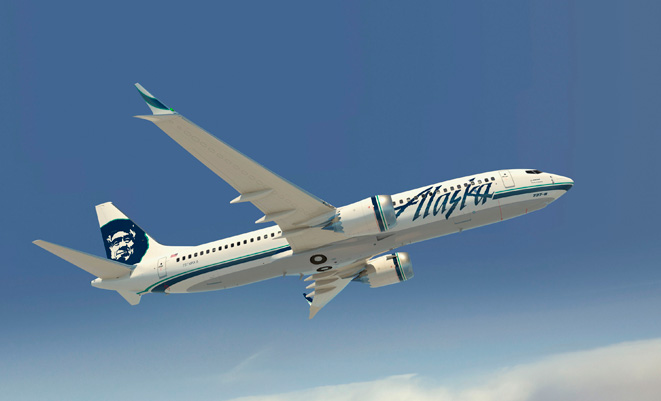
Alaska Airlines appears to be following through on its intention to return to a “proudly all Boeing” airline, as it begins to offload Airbus aircraft it acquired in its $2.6 billion takeover of Virgin American in 2016.
Last month, Alaska Air Group announced it had sold 10 Airbus A320 jets to California aircraft lessor Air Lease Corp, in a deal that would also see it acquire 13 Boeing 737 MAX 9 jets instead.
The carrier’s top aircraft fleet executive has now said that this deal has been quickly followed up with another, which dictated the gradual return of 39 of its leased Airbus aircraft over the next three years.
“I wish I had a 100 of those deals because they are the ones that turn out well,” Alaska senior vice president of fleet, finance and alliances Nat Pieper said of the announcement.
He noted that the deal is hugely beneficial to Alaska Airlines, as it gives the airline “a way out of airplanes we don’t want and brings us aircraft that we do [want]”.
Pieper noted that 10 of the carrier’s Airbus A319’s are leased, and have now been retired “and won’t fly for Alaska again”.
“Those will be returned to their lessors,” he said, adding that “we have two 320s in a similar situation. One returns this month, another in Q1 of next year”.
Pieper stated that 39 of the airline’s leased A320s will be returned to the lessor under the agreement made, and said the A319s and A320s “are the least efficient aircraft we have”.
“They’re too small for where we’re flying. As we put the Virgin America and Alaska networks together, that became pretty obvious,” Pieper said.
The decisions will see the carrier cut the number of Airbus aircraft in its fleet by more than half.
While the move is a clear step back into Alaska’s old camp of a “proudly all Boeing” carrier, the decision to completely offload the rest of its Airbus planes is not yet set in stone.
The carrier currently leases 10 Airbus A321neo jets, the biggest in its fleet, and ideal performers on transcontinental routes.
Alaska A321neos, which have 185-190 seats, are leased for five to seven years and are owned by four or five different aircraft lessors, Pieper said, noting they serve markets that the smaller Boeing 737 cannot.
“As we work forward with the ‘Great Fleet Question (Boeing v Airbus),’ as our employees like to call it, we’re working with Boeing and Airbus to see what the right answer is,” Pieper said.
“It could be more A321s, or it could be more Maxes and we eventually phase out A321s. … We can go either way,” Pieper said.
Deciding factors will include operating cost differentials, revenue the jets each generate and prices.




